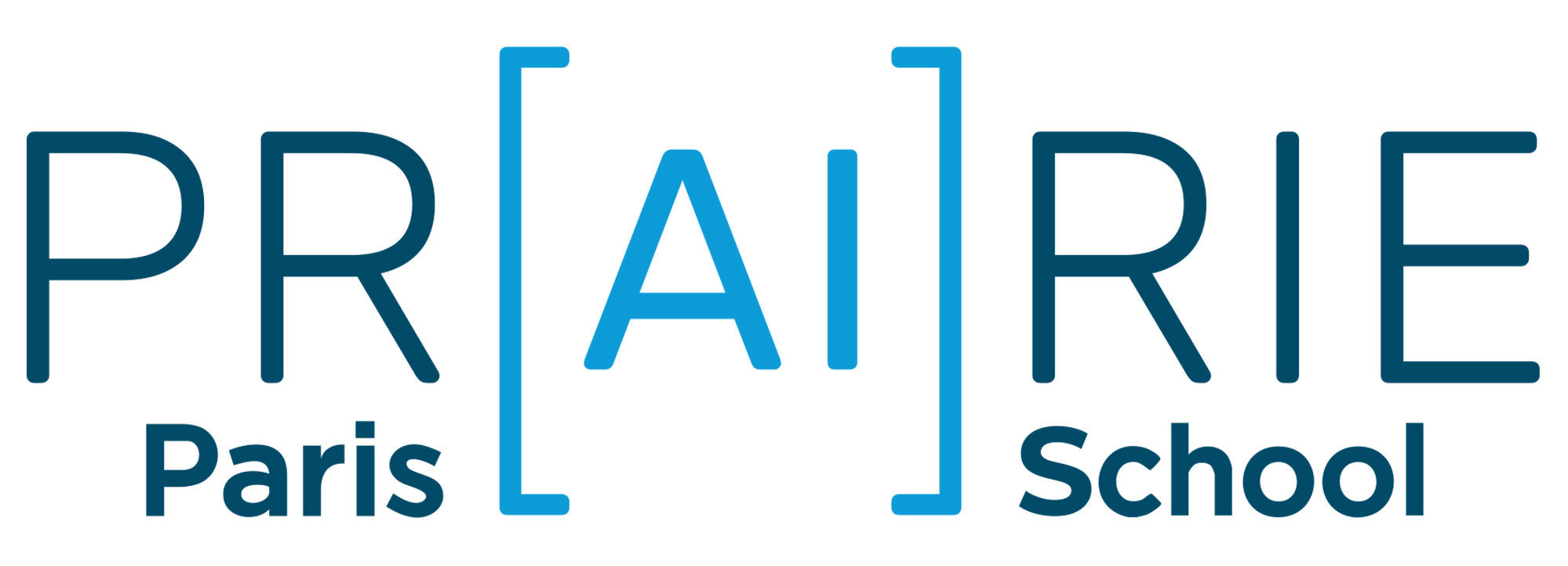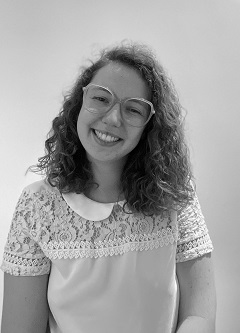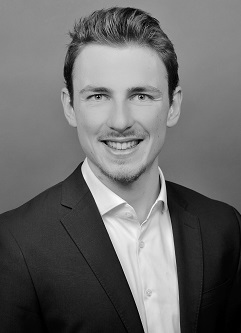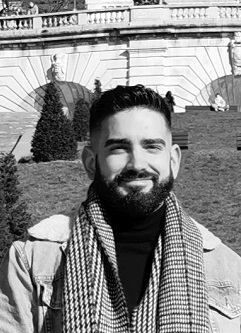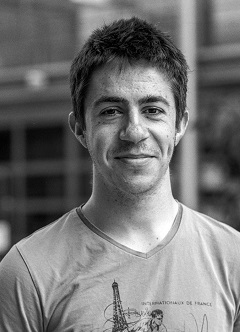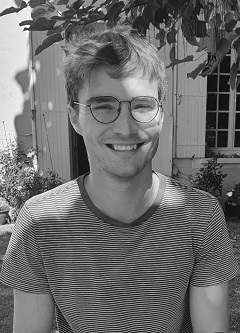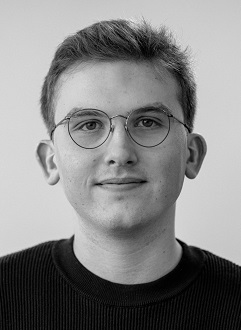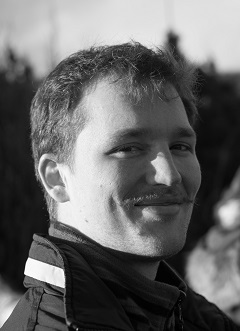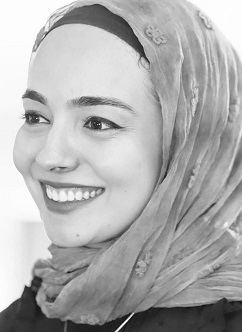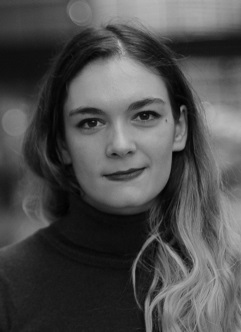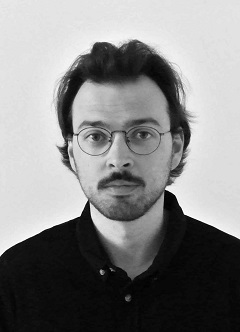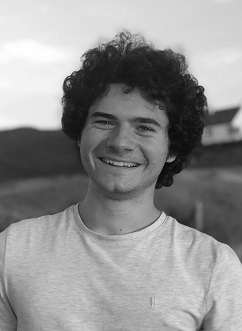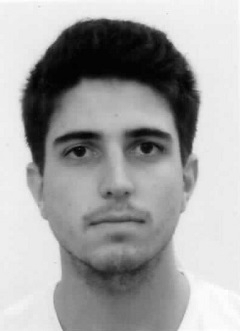NISHIMWE Lydia
lydia.nishimwe [at] inria.fr
Short bio
- Bachelor of Science in
Mathematics and Computer Science, Université Grenoble Alpes
- Master of Engineering in Mathematics and Computer Science, École Centrale de Nantes
Thesis topic
Robust Neural Machine Translation.
Short abstract
Neural machine translation models struggle to translate texts that differ from the “standard” data commonly used to train them. In particular, social media texts pose many challenges because they tend to be “noisy”: non-standard use of spelling, grammar and vocabulary; typographical errors; use of emojis, hashtags and at-mentions; etc. I aim to develop new methods to better translate these texts.
LE PRIOL Emma
Université Paris Cité and Kap Code
emmalepriol [at] gmail.com
Short bio
Master’s degree : mathematics (Université Paris – Dauphine) and social sciences (Sciences Po Paris)
Thesis topic
Using NLP to leverage social media data in the study of rare diseases.
Short abstract
My PhD thesis aims at exploring NLP techniques to study the online contents from rare diseases’ patients or their caregivers. The first goal is to better understand natural histories of the studied diseases, and compare the spontaneously reported symptoms to symptoms collected during medical interviews. The other goal is to study how patients’ associations become invested in public policy governance, in particular by acquiring a vast knowledge collectively.
MAIER Jakob
jakob.maier {at} inria.fr
Short bio
Bachelor of Science in Mathematics: Technical University of Munich
Master of Science in Statistics and Probability: Ecole Polytechnique (M1) and Université Paris Saclay (M2)
Thesis topic
Efficient algorithms for information extraction on graphs.
Short abstract
We examine algorithms that extract information from a given graph which can be issued from an application or from random sampling. The information is typically obtained in the form of statistical, algebraic, or combinatorial invariants and serves in several applications: detection of a latent geometric structure, alignment of two graphs, or community identification. The main objective is to obtain theoretical guarantees for the functioning of the algorithms while assuring that they can be efficiently executed.
BLANKE Matthieu
matthieu.blanke {at} inria.fr
Short bio
Master M2 Mathématiques, Vision, Apprentissage of ENS Paris-Saclay in 2021 and ingénieur de l’École polytechnique.
Thesis topic
Deep implicit layers with applications to physical systems and reinforcement learning.
Short abstract
My research focuses on the use of machine learning tools to understand and control physical systems. I am interested in developing efficient methods to learn physical systems, with the concern of incorporating and taking advantage of available prior information.
GARCIA PINEL Ricardo
ricardo-jose.garcia-pinel [at] inria.fr
Short bio
- Bachelor of Engineering in Telecommunication Technologies and Services, Technical University of Madrid (UPM)
- Master of Science in Telecommunication Engineering, Technical University of Madrid (UPM)
Thesis topic
Learning visuomotor policies for robotic manipulation and navigation.
Short abstract
Current industrial robots are mostly restricted to predefined tasks in controlled environments and are lacking the ability to adapt to new settings. Hence, the use of robots in cluttered and changing environments where the robot is required to adapt behaviors during task execution presents a major challenge. Existing methods rely on hand-engineered methods which typically overfit to a particular setting and need to be re-designed for every new task and environment. To deal with those challenges, future robots should be equipped with advanced perception coupled with control enabling navigation and manipulation in previously unseen and dynamically changing environments. The scientific objective of this thesis is to design, develop and evaluate new models and algorithms for learning visuomotor policies for goalconditioned robotic manipulation and navigation.
CHABAL Thomas
thomas.chabal [at] inria.fr
Short bio
- Master’s degree in Applied Mathematics and Computer Science – Ecole des Ponts ParisTech (diplôme d’ingénieur)
- Master’s degree in Mathematics, Vision and Learning (MVA) – Ecole Normale Supérieure Paris-Saclay
Thesis topic
Physics and Learning for Visually-Guided Robotics.
Short abstract
The purpose of this PhD is to enhance robots autonomy in unknown environments by learning visually-guided behaviors from sensory data. We plan to automate action plans by developing methods combining modern computer vision techniques with geometric reasoning which will lead to fast search methods, able to adapt on-the-fly to previously unseen environments.
BEUGNOT Gaspard
gaspard.beugnot [at] inria.fr
Short bio
Ecole Polytechnique – MVA
Thesis topic
Non-convex optimization and learning theory with kernel methods.
Short abstract
Kernel methods are a versatile tool to study the statistical properties of a vast category of learning algorithm. On one hand, we aim at understanding the generalisation properties of neural network. This enable to design new and more efficient learning routines. On the other, we tackle non-convex optimisation problems through kernel sum-of-squares.
GODEY Nathan
nathan.godey [at] inria.fr
Short bio
Masters of Engineering, Ecole des Ponts
Thesis topic
Cheap and expressive neural contextual representations for textual data.
Short abstract
Neural language models are pre-trained using self-supervised learning to produce contextual representations of text data like words or sentences. These representations are shaped by the pre-training procedure: its data, its task, its optimization scheme, among others. I aim at identifying ways to improve the quality of the text representations by leveraging new pre-training approaches, in order to reduce data and/or compute requirements without quality loss.
ELAMRANI Aïda
Institut Jean Nicod, ENS-PSL & Chargée d’études CNRS
aidaelamrani [at] outlook.fr
Short bio
Master in Theoretical Computer Science / Aix-Marseille Université
Thesis topic
Information in the Interplay Between Mind and Matter.
Short abstract
CHADOUTAUD Loïc
loic.chadoutaud [at] curie.fr
Short bio
Ingénieur Civil des Mines de Paris – Mines ParisTech (Master’s degree in Science and Executive Engineering)
Master 2 – Mathématiques, Vision & Apprentissage – ENS Paris-Saclay (MVA Master’s degree)
Thesis topic
Spatial and Temporal Heterogeneity of single cell transcriptomic data.
Short abstract
Spatial transcriptomics is a new kind of technology that allows biologists to measure both transcriptomic information and spatial locations in tissues. My project aims to develop methods (such as clustering, dimensionality reduction algorithm…) for the analysis of such multimodal data. In particular, we are mainly interested in the links between spatial organization and transcriptomic heterogeneity within tissues.
FU Guanghui
guanghui.fu [at] icm-institute.org
Short bio
Master of Software Engineering; Beijing University of Technology
Thesis topic
Segmentation, classification and generative models for computer-aided diagnosis of neurological diseases from neuroimaging data.
Short abstract
The objective of this project is to design and validate deep learning methods for computer-assisted diagnosis of neurological disorders, and in particular methods that can deal with applications where annotated data is limited.
SAMARAN Jules
samaran [at] bio.ens.psl.eu
Short bio
- Ingénieur Civil des Mines de Paris –
Mines ParisTech (Master’s degree in Science and Executive Engineering)
- Master 2 – Mathématiques, Vision &
Apprentissage – ENS Paris-Saclay (MVA Master’s degree)
Thesis topic
Methods for single-cell multimodal integration.
Short abstract
Recent technological advances allow biologists to profile multiple modalities (e.g. gene expression, DNA methylation, chromatin accessibility, etc.) from a single cell. However, such data are still rare and most of the existing single-cell multi-modal data are profiled from different cells (i.e. unpaired data). My project aims at developing integrative dimensionality reduction approaches for unpaired multimodal data (i.e. a collection of monomodal data sets) that are adapted to single-cell data. This tool will enable to cluster cells based on their multimodal similarities, to extract markers from the different modalities and to transfer annotations from one data set to another.
NOUIRA Asma
asma.nouira [at] mines-paristech.fr
Short bio
- Master degree, National Engineering School of Sousse, Tunisia
- Engineer degree, National Engineering School of Sousse, Tunisia
Thesis topic
Stable feature selection in multi-locus Genome Wide Association Studies.
Short abstract
Our main goal is to provide a stable framework in Genome Wide Association Studies using Machine Learning, essentially feature selection models to deal with high-dimensional data. Many challenges lay ahead such as: genetic population stratification, linkage disequilibrium patterns clustering, the stability of the selection and the computational complexity. We aim to solve these issues by developing efficient algorithms applied to real data in case control studies such as breast cancer disease.
DO Salomé
École normale supérieure - PSL
salome.do [at] ens.psl.eu
Short bio
MSc / Engineering degree at ENSAE IP Paris
Thesis topic
Computational Content Analysis Methods for News Frames Prevalence Estimation in the Political Press.
Short abstract
This dissertation aims at providing Computational Content Analysis (CCA) methods for the analysis of News Framing in the political press. First, it aims at creating a french corpus of political press articles and providing human annotations for two news frames identification tasks, derived from the literature on strategic news framing and “horse race” journalism. Second, it aims at exploring the modalities (frame complexity, data quantity and data quality) in which Supervised Machine Learning (SML) methods can “augment” social scientists, i.e. train a model to generalize social scientists’ content analysis (CA) codebook (and subsequent text annotations) so that billions of articles can be analyzed instead of a few hundred. Third, the dissertation aims at evaluating the potential benefits of CCA over CA when it comes to estimating news frames prevalences in a corpus. What justifies using CCA over CA, and is it always justified? I will try to define the conditions on SML models performances under which news frames prevalence estimates are more accurate with CCA than CA.
Short bio
Master’s degree in Theoretical Physics, 2021, Technical University Berlin
Thesis title
Analysing discourse and semantics through geometric representations.
Short abstract
I explore geometric approaches to language and discourse analysis. Currently, I work on combining methods from network science and natural language processing to gain insights on the mechanisms behind information and knowledge spreading related to climate change.
VINCENT Louis
Université de Paris / Inria / Inserm / Implicity (CIFRE thesis)
louis.vincent [at] implicity.fr
Short bio
Master 2 – Mathématiques, Vision & Apprentissage (ENS Paris-Saclay),
Master 2 – Statistiques (Sorbonne Université – Campus Pierre et Marie Curie)
Thesis title
Longitudinal data encoding applied to medical decision support in telecardiology.
Short abstract
In telecardiology as in many other fields of modern medicine, we have at our disposal large amounts of data explaining the evolution of a patient. These data can often be missing or corrupted, and data from several sources can sometimes be of different nature, which makes their exploitation difficult.
My goal is to develop a model capable of synthesizing different types of temporal data via auto-encoders to infer the state of a patient. In the context of tele-cardiology, this could for instance allow us to predict deteriorations of a patient’s health status, and thus anticipate and prevent more serious complications.
DELEMAZURE Théo
Université Paris Dauphine-PSL
theo.delemazure [at] dauphine.eu
Short bio
Master 2 IASD (ENS Ulm)
Thesis title
Context-dependent collective decisions.
Short abstract
Traditional research in social choice (axiomatic or computational) consists in proposing collective decision mechanisms that are often too rigid. We will focus on the development of families of parameterized rules, which have enough variability and flexibility to allow the development of “tailor-made” mechanisms for specific problems.
ARJONILLA Jérôme
jerome.arjonilla [at] dauphine.psl.eu
Short bio
- Master in Computer Science, Sorbonne University
- Double Bachelor in Mathematics and Economics, Université Toulouse
Thesis title
Search and Learning algorithm for games with imperfect information.
Short abstract
Monte Carlo research has revolutionised game solving, and, combined with deep reinforcement learning has led to the creation of programs such as AlphaGo, Alpha Zero or Polygames that have beaten the best human players in many games. My thesis topic will focus on the extension of the methods of Monte Carlo and Deep Reinforcement Learning for imperfect information games with several players (multi-agent system).
BERTRAND Theo
Université Paris Dauphine-PSL
tbertrand [at] ceremade.dauphine.fr
Short bio
Diplôme d’ingénieur et Master en Mathématiques appliquées de l’Ecole Centrale Lyon
Thesis title
Méthodes géodésiques et IA pour la microscopie par localisation ultrasonore.
Short abstract
Ultrasonor Localization Microscopy is a new method in super-resolved Medical Imaging that allow us to overcome compromise between precision and penetration distance in the tissues for the imaging of the vascular network. This new type of images raises new mathematical questions, especially for the segmentaton and analysis, necessary steps to achieve medical diagnostic of patients.
MAKAROFF Nicolas
Université Paris Dauphine-PSL
makaroff [at] ceremade.dauphine.fr
Short bio
M2 MVA ENS Paris-Saclay
Thesis title
Segmentation and modeling of tree structure by Deep Learning with geometric constraints, applications in biomedical imaging.
Short abstract
Deep Learning has shown real capabilities for different tasks ranging from classification to segmentation in various fields such as chemistry, computer vision or even medicine. Generally, known architectures are used to solve these problems. However, this generality of architectures, although obtaining good results, does not yet consider the geometric and topological structure of the studied data, which can lead to a reduced interpretability and acceptability of the results due to a lack of transparency
